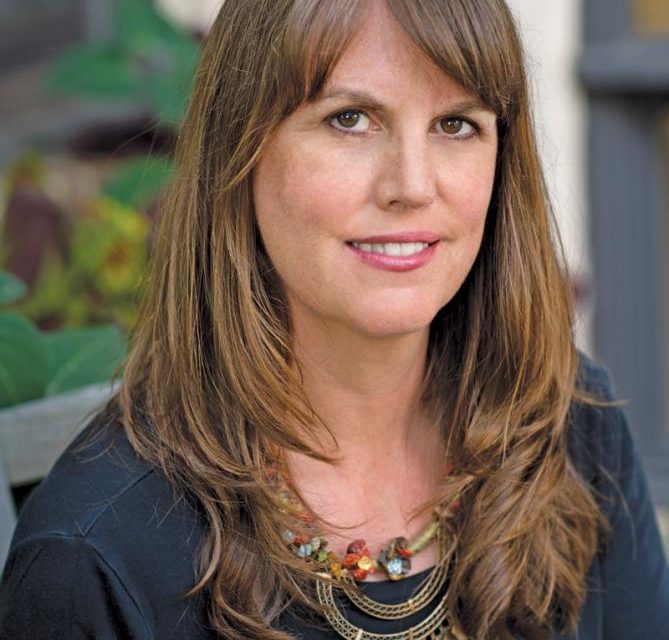Elizabeth Kostova writes big books, the kind that suck you in and shape your imagination for a few days or a few weeks. When you come back to the world outside of these books (what some people too easily call “the real world”), you are temporarily dazed, disoriented. There have been obvious subjects in her books–vampires in The Historian, art in The Swan Thieves, and communist prisons in her new one, The Shadow Land–but they have always been primarily obsessed with history: how it shapes us, and how our discovery of its influence in our lives can change the way we understand our daily experience of the world. Alexandra, the heroine of the new book, feels “as if she really had fallen off a bridge and into white water and been pulled under.”
Kostova’s books are dense with vivid detail and not always easy, yet they have become international best sellers. Either readers share the urgency of Kostova’s obsessions, or they just appreciate her ability with complex and intriguing plots.
In The Shadow Land, a young American, Alexandra Boyd, arrives in Bulgaria, hired to teach English for a year. Before she has a chance to have her post-flight nap, and after a mix-up with a family on the steps of a hotel, she finds that she has inadvertently taken a bag with a funerary urn in it. And the urn already has its ashes. She tries to find the family and return it–and then the story gets a lot more complex.
The action of The Shadow Land takes place quickly, over the length of a week. Drawn immediately into “this world of little work, much poverty, vulgar riches for a few,” she rapidly feels the oppression of its power and the fear created by its corruption.
Given Kostova’s obsession with history, however, it should not be surprising to discover that the book is really concerned with the lingering effect of Bulgaria’s decades under communist rule. She weaves a second story into the book, a tale of lives destroyed in the squalor of political prisons, that complements and complicates Alexandra’s own experience of the country, until the two stories merge and become inseparable.
Kostova has created a rich group of characters and paints the landscape and cityscapes of Bulgaria vividly, but allows them to retain their mystery and their sense of otherness for the young American. We take that sense of mystery back to our own realities, wonderfully dazed by the experience of the book.
Elizabeth Kostova returns to Ann Arbor to read from The Shadow Land on April 17 at Nicola’s Books
